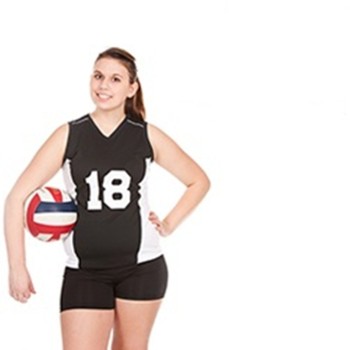
Eleven instruction how to create successful practice
The team at Liberty Mutual Insurance has gathered together experts from across youth sports – including experts from Positive Coaching Alliance and USA Volleyball to provide valuable advice and resources. This month, the Responsible Sports team provides 11 steps for Responsible Coaches to create a successful practice.
Coaches Preparation: Mental preparation is especially important for volunteer coaches, who often come to practice straight from work. If it was a good day at work, it’s not too hard to start practice in an upbeat mood. But if it was a tough day at the office, or important tasks were left undone in order to make the practice, it can be all to easy to let the negative feelings linger…and impact the attitude of the young athletes. Coaches should always take a few minutes to mentally leave the workday behind – and bring excitement, enthusiasm and the “A game” to the team and their practice.
Objective & Priorities: What do you want your players to have mastered by the end of practice? Remember, Responsible Coaches adopt a Mastery Approach. Write down one to three objectives for your practice, and rank them in order to ensure you hit the most important items before you run out of time.
Opening Ritual: Responsible Coaches set the tone right away, with a strong Opening Ritual. An Opening Ritual directly tells athletes to leave school behind, focus on volleyball and your teammates and be excited about practice.
Instruction/Skills & Drills: Every practice includes instruction. Our favorite piece of advice from the experts at PCA? Teach new skills in the “whole-part-whole” method. For example, if you want to teach players a new play that involves different intricacies for each player, it’s a good idea to show them how the play is supposed to work at first. Walk them completely through it, briefly pointing out things that each player needs to do to make it all work, and assure players that you’ll break it down for them so they’ll be able to practice their parts later. Then, after each player learns his or her part, put the whole thing together again.
Conditioning: Conditioning is critical. As Responsible Coaches, you know that. But you also need to know that sometimes, this part of the practice can be a real drag for young athletes. So why not make it fun? Change the location you hold each practice. Hold mini-competitions to see who can complete one segment of the run the fastest. Pair up kids and have them talk to each other about a topic as they run, then discuss it when you circle back up.
Fun Activities: Sports are supposed to be fun. Don’t ever forget this. And certainly don’t let your young athletes forget this. Try to find ways to infuse fun into all aspects of the practice – from conditioning to rituals and everything in between.
Scrimmaging: Kids love playing in simulated game conditions. But a Responsible Coach also considers what a proper scrimmage looks like. When kids get to touch the ball more, they develop skills faster and have more fun with the game. This could be especially valuable for defenders, who can easily get bored watching from afar while all the action happens on the other end.
Team Meetings as Conversation: Teams come together when they gel. When they participate with each other. When they dialogue with each other. Legendary NBA coach Phil Jackson talks about allowing players to have the first word. Boston Celtics coach Doc Rivers stresses “quiet drills” to reinforce the power of communicating as a team. When coaches engage players in conversation, they are treating the athletes under their direction as equals. This is a big “tank filler”, which contributes to greater performance.
Adding the Life Lessons Question: Responsible Coaches seek to win both inside and outside the athletic arena. While the life lesson from practice may be obvious to the coach who imparts it, it might not be so clear to your athletes. So talk about it with them. Bring it up in your team meeting. Let the young athletes talk about it and engage with the topic.
Closing Ritual: Just as the Opening Ritual set the tone for practice, the Closing Ritual helps set the tone for kids to take the positive experience of practice into their everyday lives. Fill tanks. We all need that in the face of at-times challenging realities and obstacles. And young men and women especially need it.
Assessment: Assessment happens both with your team and afterwards, in a self-reflective manner. How did practice go today? What was your favorite part, and why? Is there something you got better at? And as the coach – what did I learn about my athletes during this practice that can help me get better as their coach? A Mastery Approach holds true for both athletes and coaches alike.
To read more similar stories click on our Did You Know? section.